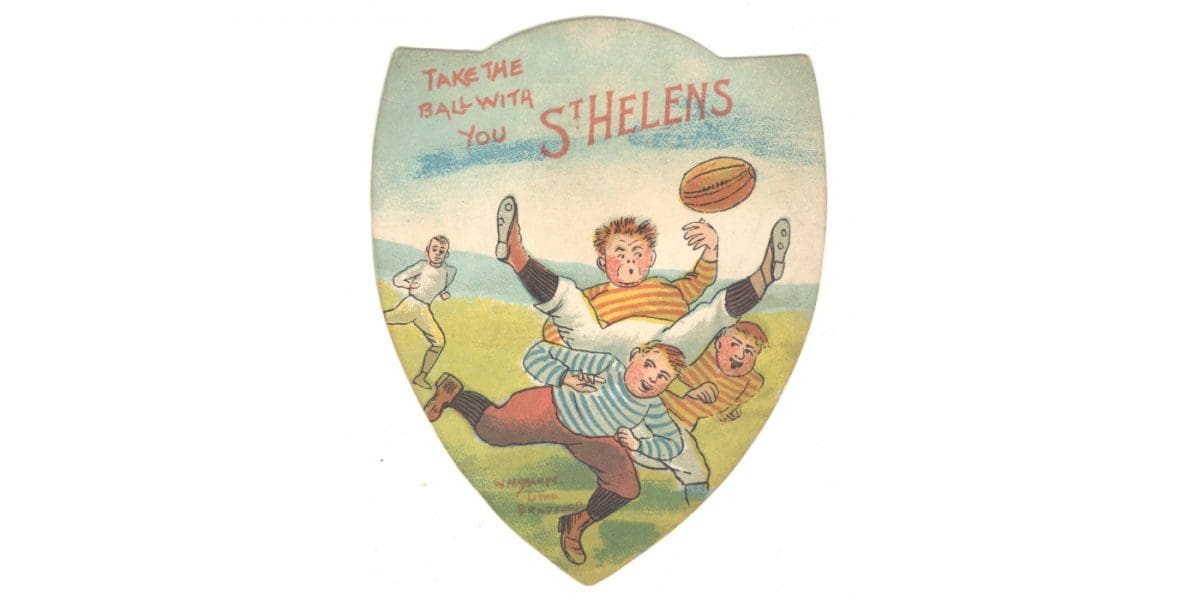This is when it all began, when St.Helens R.F.C. was formed at a public meeting on a Wednesday evening in the Fleece Hotel in Church Street on November 19 1873.
The main ‘mover and shaker’ was William Douglas Herman, the newly-appointed Head Chemist at Pilkington’s Crown Glass Works, who had played rugby in his school and college days and for the Crescent club in London, where he was born. He was disappointed that there was no rugby club in the area.
On many a cold winter’s afternoon, the ‘Sporting Chemist’ could be seen kicking a ball around with some of his new-found friends on a field near Boundary Road. These young gentlemen were keen to try their hand at this new game which would fill a gap in their sporting calendar. By 1872, there were clubs established in Liverpool, Manchester and Wigan!
He wanted to form a club and William initially turned to his workmates, but this came to nothing. Undeterred, he placed an advertisement in the St. Helens Newspaper calling a meeting at a local hostelry for anyone interested in forming a club:
“It is proposed to form a football club for St. Helens and neighbourhood. Gentlemen taking an interest in the game are requested to attend a preliminary meeting to be held at the Fleece Hotel on Wednesday November 19, 1873 at 7.30pm.”
The meeting attracted some of the most prominent young men in the town who had industrial and commercial connections, with names such as Gamble, Varley, who themselves have carved out their own niche in our town’s history.
Under the Chairmanship of William Douglas Herman, a club was formed. Rules were drawn up and the use of the Recreation Ground at Boundary Road secured. Their first game took place early in late January 1874, against Liverpool Royal Infirmary on their newly-acquired home turf.
After several changes of name [Eccleston Rangers and St Helens Rangers], amalgamation with St. Helens cricket Club and residence of several different grounds in the town, the club moved to Knowsley Road in 1890 to ensure a more-or-less stable existence, before the advent of professionalism changed the very nature of our club and we broke away from the 15-a-side code.
Then there was the move to the Totally Wicked Stadium in 2012, another major phase in our proud club’s great history.
What memories the club has provided for us over the years. Long may it continue!



















































